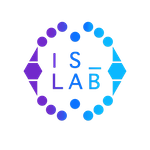K. Kravari, C. Antoniou, N. Bassiliades, "SENSE: A Flow-Down Semantics-Based Requirements Engineering Framework", Algorithms, 14(10):298, 2021.
Author(s): K. Kravari, C. Antoniou, N. Bassiliades
Appeared In: Algorithms, 14(10):298, 2021.
Keywords: boilerplates engineering; designing software; ontologies; requirements engineering; semantics; software management
Tags:
Abstract: The processes involved in requirements engineering are some of the most, if not the most, important steps in systems development. The need for well-defined requirements remains a critical issue for the development of any system. Describing the structure and behavior of a system could be proven vague, leading to uncertainties, restrictions, or improper functioning of the system that would be hard to fix later. In this context, this article proposes SENSE, a framework based on standardized expressions of natural language with well-defined semantics, called boilerplates, that support a flow-down procedure for requirement management. This framework integrates sets of boilerplates and proposes the most appropriate of them, depending, among other considerations, on the type of requirement and the developing system, while providing validity and completeness verification checks using the minimum consistent set of formalities and languages. SENSE is a consistent and easily understood framework that allows engineers to use formal languages and semantics rather than the traditional natural languages and machine learning techniques, optimizing the requirement development. The main aim of SENSE is to provide a complete process of the production and standardization of the requirements by using semantics, ontologies, and appropriate NLP techniques. Furthermore, SENSE performs the necessary verifications by using SPARQL (SPIN) queries to support requirement management.
